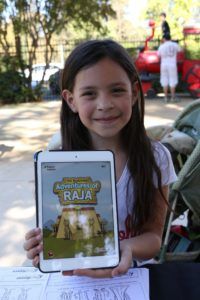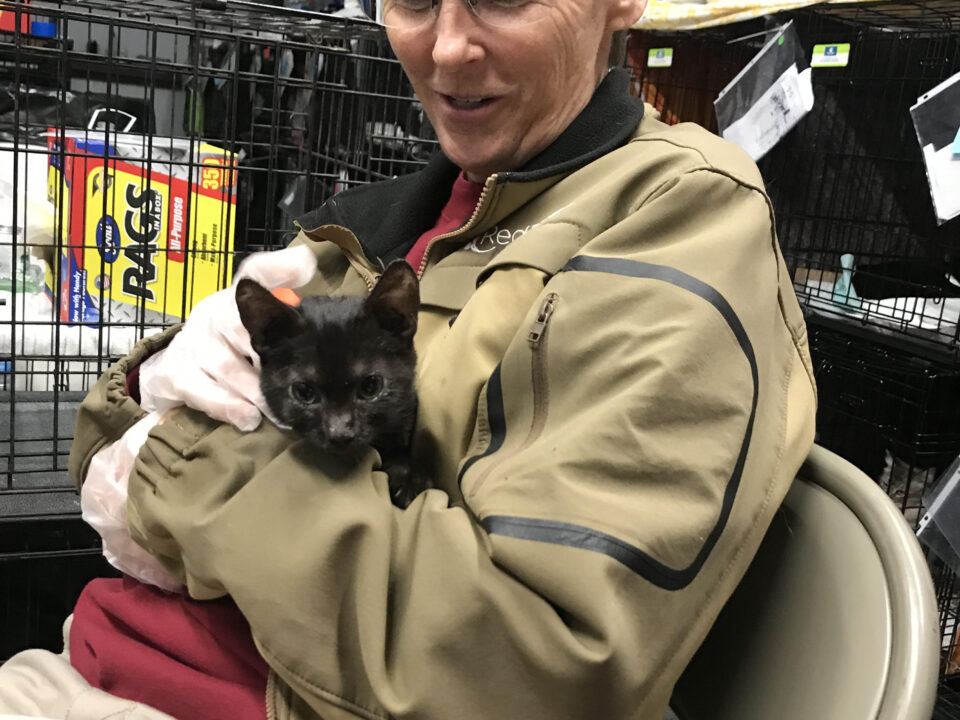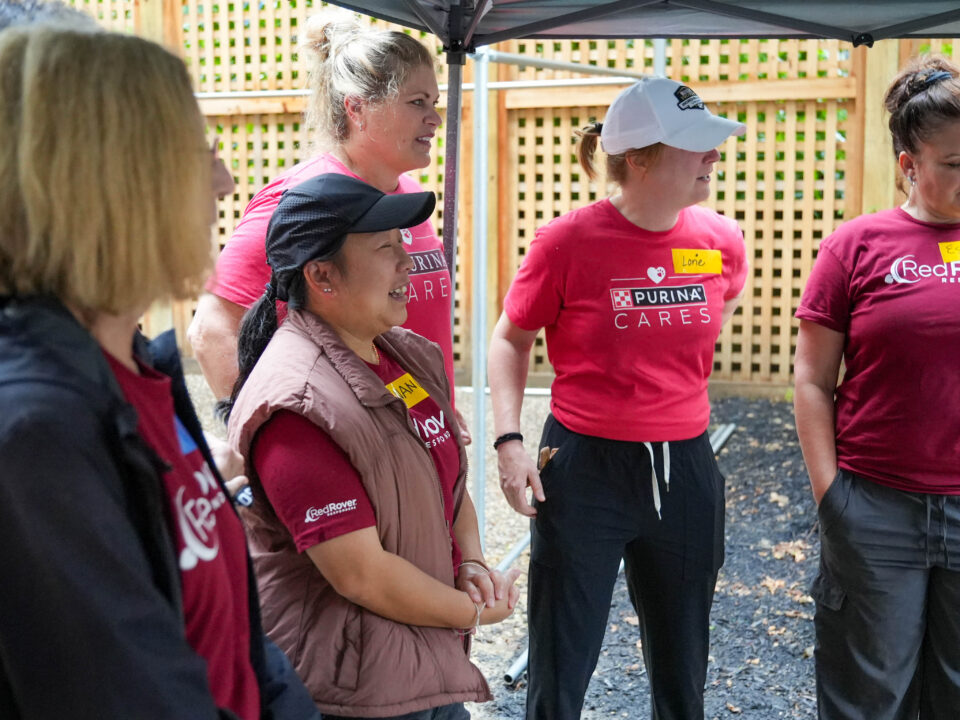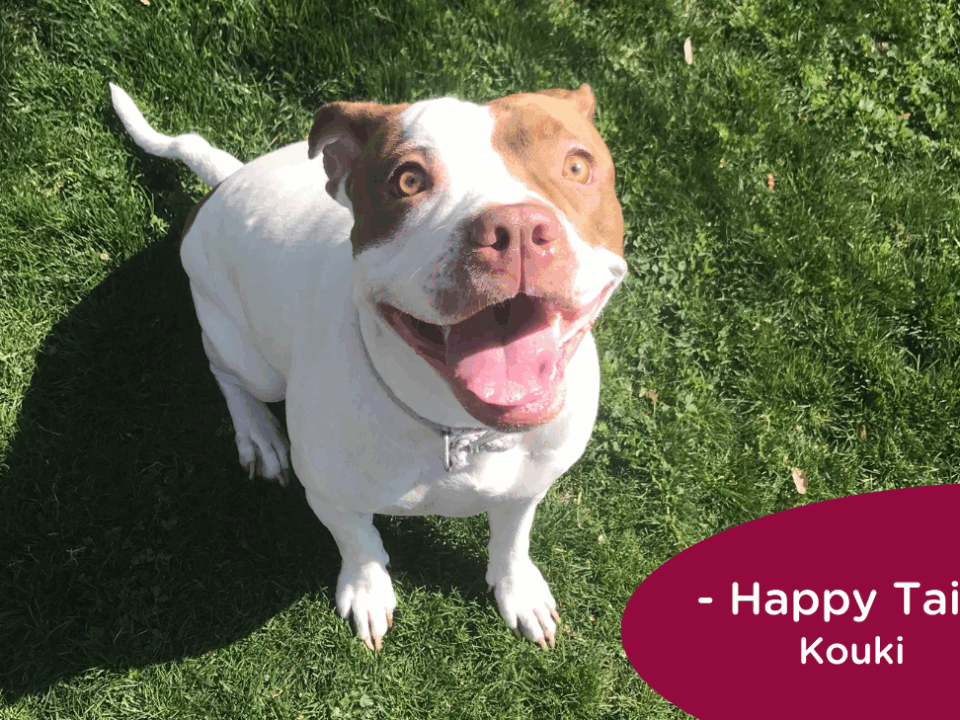Can Screens Build Connection?
March 4th, 2019
By Nicole Forsyth, RedRover President & CEO
If you’re a parent or work with kids, you’ve likely come across the question of whether digital technology is bad for kids many times. Having seen firsthand the way my own daughter becomes completely immersed in screens, I’ve had moments of worrying that more screen time could lead to more disconnection, as screens seemingly pull people away from the “real” world into a virtual one. So why on earth did I lead the charge for RedRover to create an app…on a screen…as a means of fostering empathy?

First of all, an app can reach more kids who otherwise may not have exposure to the RedRover Readers program. The full RedRover Readers program trains educators in how to use specially-chosen stories about human-animal relationships paired with strategic questioning strategies to help kids learn the three steps for empathy:
- recognize emotional states;
- recognize and share one’s own emotional states;
- regulate emotional states to make better decisions and build positive relationships.
The Restricted Adventures of Raja book app series provides an interactive RedRover Readers experience that is as close to the program implementation as possible without a student having to physically be in a classroom with a trained educator. In this way, a parent or teacher who hasn’t gone through our training can easily download and use the apps with the sample questions and facilitation tips embedded into them – the same techniques we use to help kids think more deeply about what people and animals experience in various situations.
Secondly, the app is designed to encourage connection. Rather than perpetuate the silo effect that can so easily happen with digital technology, the Raja app is designed for a parent or teacher to read the story to kids and use the pop-up questions to initiate conversations about emotions and the relationships between the various characters.
The three book apps all show accurate animal behavior and include questions that prompt reflection and perspective-taking. Kids learn to consider how the human and animal characters are feeling, how they would feel and what they would do in a similar situation. (More in-depths reading guides are also available online at RedRover.org/empathyapp.)
While the app provides a model for how a parent or educator can enhance kids’ social and emotional learning through reading and conversation, perhaps more importantly, it serves as an example of the kinds of questions that can be asked to deepen any relationship – whether on screen or off. Asking kids open-ended questions and being genuinely curious about their responses can enhance child-adult relationships, build self- and other-awareness and identity, increase engagement with learning and provide kids with a powerful reinforcement for learning: genuine, positive attention and autonomy. The games included in the app help kids further practice what they’ve learned using engaging, play-based learning strategies.
There are a lot of great examples of why screen time isn’t necessarily bad for kids. While I still think my daughter should spend more time outside or reading books (like I did), she is growing up in a totally different world, and success in her future will mean communicating well in-person and digitally. And she will need to flip seamlessly between the two in ways I can only imagine. Although practicing face-to-face communication is extremely important, kids also need to learn what empathy looks like and feels like digitally. You do not need face-to-face communication to imagine how someone may be feeling; we know empathy is elicited – and in fact perspective-taking grows stronger – after reading high-quality fiction where readers rely on their imagination to “see” and share a bit of what they think characters are feeling.
But all empathy takes practice and guidance, and kids need better models of how to do this well in person and online. And with all the practice kids could in theory get doing this online, there is the potential they could be even better at this than the previous generation since communicating digitally via text, online gaming, social media or other messages on screens provides new and unique ways to communicate, such as being able to think about what you want to say before you say it, another way to practice self- and other-awareness that can be carried over to face-to-face relationships.
There is no doubt that all this makes parenting and educating more complex. In addition to the conversations my daughter and I have about stories in books and on the more familiar screens of my childhood (movies and TV), we interact together through text and social media, and it is really challenging to juggle it all. I ask questions about her school day and classmates, as well as her virtual worlds and online friends. I model for her how to converse online, to respond with empathy, warmth, humor, to ask questions. We talk about how online and in-person interaction and identity might be different and how people online and in person might be feeling. I ask questions similar to the integrated questions in the Raja empathy apps to increase her awareness of self and other. I challenge her to think creatively and independently in whatever space she is in. I call attention to the automated algorithms controlling the content she sees.
We work on digital literacy together, and learning and growing with her in this ever-changing, complex new reality, is mind-blowing and humbling. As this NPR story affirms, “When parents become digital mentors, children can learn empathy and resilience and prepare for careers.” Digital technology can open doors as much as close them; being an optimist I see them opening, but not without help.
Join the conversation and learn more about The Restricted Adventures of Raja app series >>



